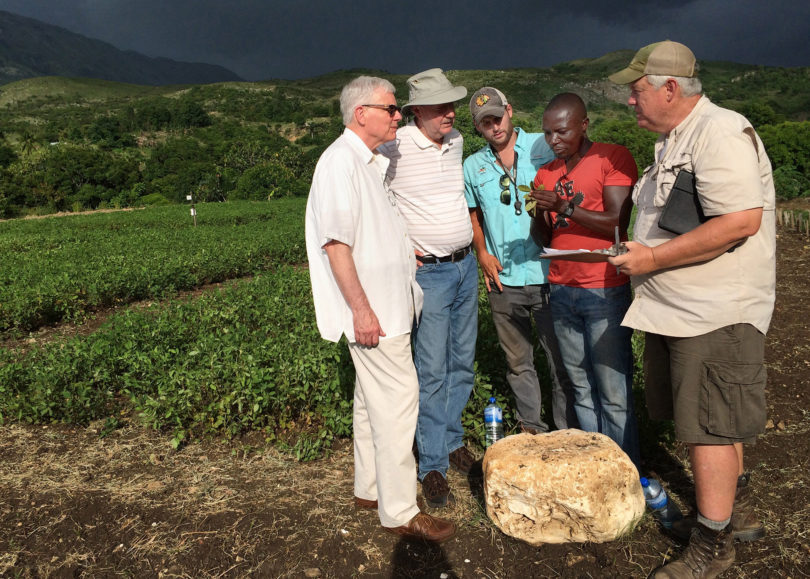While UGA is known as a hub for peanut research, sometimes the research with the most impact is conducted on farms in countries that will benefit the most from the findings.
J. Scott Angle, UGA’s College of Agricultural and Environmental Sciences dean, and Amrit Bart, director of global programs at the college, visited several of UGA’s research partners in Haiti last month to see how the college could help Haitians improve the safety and effectiveness of food production. The trip was hosted by the U.S. government’s Feed the Future Peanut and Mycotoxin Innovation Lab. Based in the college, the lab works with colleagues in Haiti to improve peanut production and processing, including monitoring and controlling mycotoxins, which can taint foods.
“Working with the Haitian people and on their farms is critical to understanding their needs, which then helps us build meaningful international research programs at the UGA College of Agricultural and Environmental Sciences,” Bart said. “As home to some of the leading researchers in food safety, peanut breeding and peanut pathology, we are in the position to improve people’s lives in a very real and immediate way by helping to make sure their important crops are productive, profitable and safe.”
This trip is part of the college’s ongoing effort to help developing nations provide their citizens with high-quality protein and build their own agricultural economies through more efficient, productive
agriculture.
From June 10-14, Angle and Bart toured facilities that receive support from PMIL’s network of scientists, including Acceso Peanut Enterprise Corporation’s depot, the Partners in Health ready-to-use therapeutic food factory and a peanut nursery and research site.
Angle and Bart participated in a half-day workshop with U.S. and Haitian government, research and private sector representatives to learn about priorities for addressing safe and nutritious foods, including the concern over mycotoxins.
Mycotoxins, such as aflatoxin, are poisonous compounds produced by molds found in many commodities, including peanuts and maize. Aflatoxin exposure in humans has been associated with many negative health effects, such as liver cancer, immune suppression and stunting of childhood development.
Researchers associated with PMIL at UGA are working with producers to develop practices that reduce mycotoxins in their crops and are working with peanut buyers to test for toxins and create incentives for farmers to produce low-mycotoxin nuts.
—Christy Fricks and J. Merritt Melancon, christyfricks@uga.edu, jmerritt@uga.edu








